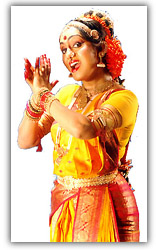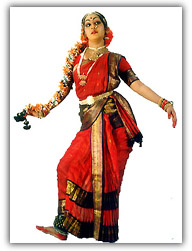|
|
|
|
Mana Sanskriti (Our Culture)To subscribe to this free monthly electronic journal
write to:
Chief Editor: Sreenivasarao Vepachedu, PhD, LLM |
|
|
||
|
Krishnamurtisastri Sripada (1866-1960)
Krishnamurtisastri was born in 1866 in a Brahmin family of Kousika gotra. He learned Sanskrit and Vedas, as per the Brahmin tradition. In those days, Brahmins used to learn their native tongue Sanskrit and the religious texts Vedas. Despite the opportunities, he avoided the formal Western education. Sripada family shunned English and formal education* to the extreme and as a result Krishnamurtisastri did not even know the difference between a yard and a square yard (ref). Krisnamurtisastri was an expert in avadhana, a form of literary art. He received several titles such as ashtaavadhaani, sataavadhani, adhunaatana kavimitrudu etc. He wrote more than hundred books, of which thirty were dramas. He considered kalabhaashini as the best among his dramas. His drama bobbili yuddham was very famous. His dramas included contemporary issues like the freedom movement, e.g., Tilak maharaja and Gandhi vijayam. His prabandhas include vijayalakshmi vilaasamu. He also translated Sanskrit Raamayana, Bhaarata and Bhaagavata, an amazing feat for one person. There is no other Telugu who translated all the three Sanskrit epics into Telugu language. He opened his own printing press to publish journals such as kalaavati and vajraayudha. He also wrote poetry on Telugu people entitled, aandhraabhydayam. He adorned the "State Poet" office. The Indian federal government honored him as a Sanskrit Poet. His biography was written in English and Telugu. He wrote his autobiography "srikrishna sveeyacharitramu" in Sanskrit and Telugu. He was also interested in extracurricular activities like horse riding and traveled widely. He received many awards, all without knowing any English or formal education. *
Today, both Brahmin and non-Brahmin Telugus are emphasizing learning English
at the cost of Telugu. And majority of Brahmins forgot Sanskrit and Vedas
altogether. The feeling that "there is nothing to learn in Telugu"
has been there for ages in Telugu-land. As a matter of fact, there is nothing
to learn in Telugu, if one wants to excel in this modern global village,
due to the policies of successive governments. As a result, everybody is
crazy about Western education in English today, which was not acceptable
during the British Raj, at least for some orthodox Brahmins and was unavailable
for majority of Telugus. The concept of learning two languages at a young
age has no place in the Telugu society even today. Consequently, Telugu
is relegated to purgatory in Hyderabad, the capital city of the Telugu State.
There is a real threat to the existence of Telugu like never before because
literacy is growing and "literate" means "one who speaks Tenglish".
Bilingualism,
knowing two languages equally well, is the only way out, unless Telugus accept
and replace dying Telugu with bombastic and high class Tenglish as their language.
While Brahmins
have to follow trinlingualism and learn Sanskrit and Vedas as well, if they
want to keep their heritage, just like Telugu Muslims learn Urdu and Koran.
Source: naa vaangmaya mitrulu, Kameswararao Tekumalla |
||
|
|
||
|
Om! Asatoma Sadgamaya,
Tamasoma Jyotirgamaya, Mrityorma Amritamgamaya,
Om Shantih, Shantih, Shantih!
|


